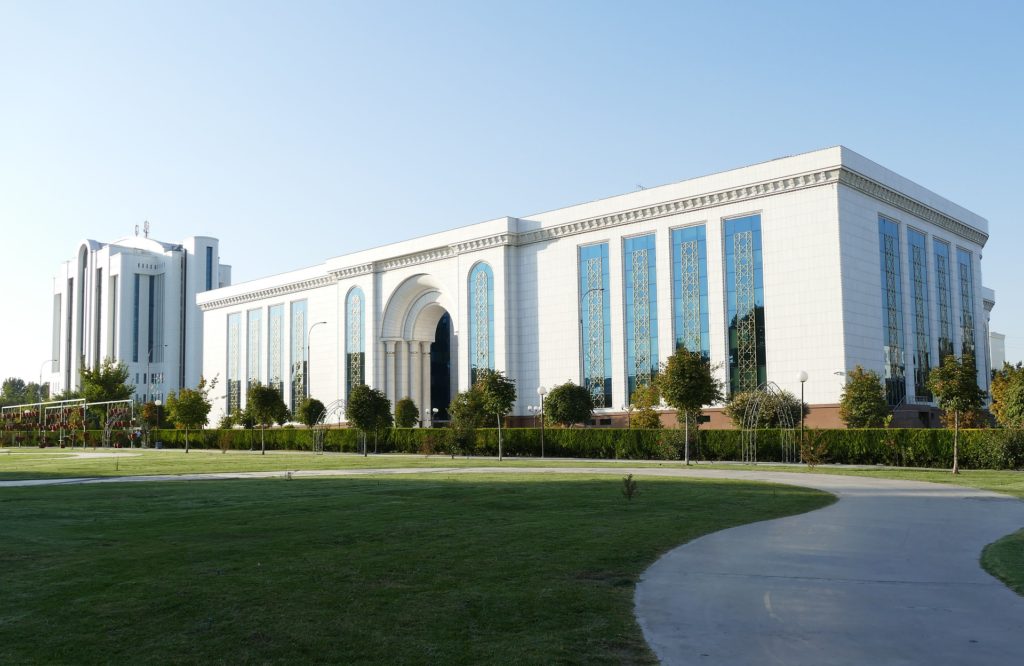TASHKENT
The International Monetary Fund (IMF) expects Uzbekistan’s economy to grow by around 7 percent in 2021, but the recovery could be delayed by internal and external factors amid the COVID-19 pandemic.
The pandemic hit Uzbekistan’s economy sharply in the first half of 2020, but the recession was moderated by strong and timely containment and support measures. That resulted in 1.6 percent growth at the end of the last year.
“Uzbekistan has weathered the pandemic relatively well, and a strong economic recovery is underway. The activity started to recover already in the second half of 2020 and has continued in 2021, thanks to the authorities’ quick and forceful actions to save lives and livelihoods,” the Fund said in a statement, commenting on results of its mission.
The Fund said that the recovery could be delayed by a resurgence of infections, a slower-than-expected rollout of vaccines, or new containment measures, as well as slower growth in Uzbekistan’s main trading partners and fluctuations in commodity prices, notably the price of gold.
“Uncertainty remains high, however, and an intensification of the pandemic, as new variants of the virus emerge, poses a large downside risk. This underscores the need to maintain the momentum in vaccine roll-out to ensure that the majority of the population will be vaccinated,” the IMF said.
It said that Uzbekistan could also be adversely affected by slower growth in its main trading partners, volatility in commodity prices, particularly of gold, or global price increases.
According to the Fund’s forecast, the growth would slow down to 6 percent in 2022.
In July, Uzbekistan’s central bank raised its growth forecast to 5.8-6.8 percent from a previous projection of 4.5-5.5 percent in 2021 as positive economic indicators in the first half of the year suggested the recovery was gathering pace.
The country’s gross domestic product (GDP) grew by 3 percent year-on-year in January-March this year, with industry increasing 3.8 percent year-on-year, agriculture 3.1 percent, services growing 2.8 percent and construction 0.5 percent. Per capita GDP grew by 1 percent year-on-year to $353.4.
The Fund said that inflation had remained elevated due to food and commodity price pressures, reflecting global trends, and was expected to be at around 10 percent in 2021.
Uzbekistan, which implemented impressive reforms in recent years, plans to reduce the budget deficit from almost 6 percent of gross domestic product (GDP) in 2021 to close to 3 percent of GDP in 2022 and beyond. IMF said that if the pandemic intensified, fiscal consolidation should be delayed, albeit with more selective and better-targeted support measures.
The populous Central Asian country’s privatisation move was also praised by the mission which said that the successful privatisation of both smaller assets and larger entities in 2021 had been “a good start.”
Ongoing reforms in agriculture, including the liberalisation of cotton and wheat prices and the reduction of crop placement requirements, are helping to diversify and boost agricultural production, the IMF added.
“While the desire to move ahead with reforms as fast as possible is commendable, greater predictability and consistency in the Uzbek government policies would help attract private investment,” it said.
The Central Asian country makes efforts to improve its investment climate after more than two decades of economic isolation that kept foreign private businesses at a distance. President Shavkat Mirziyoyev made the attraction of foreign investors one of the top priorities of his ambitious reform agenda.

